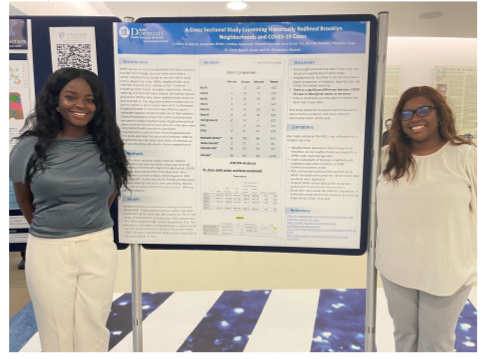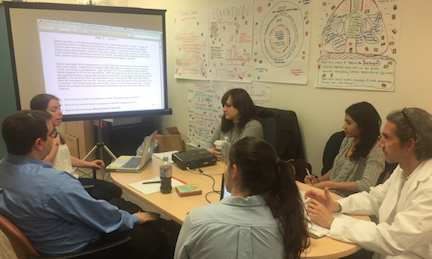Health Equity Advocacy Leadership Pathway (HEAL)
“Of all of the forms of inequality, injustice in healthcare is the most shocking and
inhumane”
— Dr. Martin Luther King Jr.
SUNY Downstate is committed to improving health outcomes, reducing health inequities, and impacting the lives of people who reside in the borough of Brooklyn. Of the 2.6 million residents in Brooklyn over 50% are from racial and ethnic minority backgrounds and approximately 50% are immigrants. This brings the unique opportunity to connect with community partners and provide care for a large immigrant and culturally rich population. As the only academic medical center in Brooklyn, SUNY Downstate is uniquely positioned to make a difference.
The Health Equity Advocacy and Leadership Pathway (HEAL) is designed for students who are passionate about tackling social determinants of health, addressing health inequities, eliminating social injustices, and reducing disparities. SUNY Downstate is committed to improving health outcomes, reducing health inequities, and impacting the lives of people who reside in the borough of Brooklyn. Of the 2.6 million residents in Brooklyn over 50% are from racial and ethnic minority backgrounds and approximately 50% are immigrants. This brings the unique opportunity to connect with community partners and provide care for a large immigrant and culturally rich population. As the only academic medical center in Brooklyn, SUNY Downstate is uniquely positioned to make a difference. This year we had 22 participants in the HEAL pathway.
The mission of HEAL is to increase the number of physicians who are equipped with the skills, knowledge, and tools that are needed in order to effectively address social determinants of health. Students in HEAL will develop skills that will enable them to create innovative, community-driven and evidence-based solutions to health disparities through collaborative community partnerships.
The HEAL pathway was developed by two second-year medical students, Rebeka (Begum) Ahmed and Alexandra Diggs with assistance from Dr. Christopher Roman, an associate professor in the Department of Cell Biology. In 2019, we enrolled 26 students in HEAL.

Goals
- Empower medical students to be more socially aware and to understand the consequences of inequities on health outcomes
- Enable students to identify and intervene on social determinants through outreach, research, policy, and clinical initiatives
- Equip physicians to be advocates for their patients and leaders in their communities
- Foster community-academic partnerships and enhance community capacity for change
Pathway Components
Journal Clubs
Students have an opportunity to discuss in ‘world cafe’ style forums how factors such as food insecurity, access to care, violence, health literacy, discrimination, and stress contribute to poor health outcomes.
-
Artificial Intelligence in Medicine: Biases and Approaches to Health Equity
-
Disparities and related social determinants in systemic lupus erythematosus
-
Physicians’ Perceptions of People with Disability and Their Health Care
-
Back to Brooklyn: Incarceration and Health
-
Critical impact of the midwifery practice on addressing racial and ethnic disparities in maternal and infant health during pregnancy and delivery
Community Engagement and Service Learning Activities
Students apply principles of community engagement to developing community-academic partnerships
Research and Scholarship
Students work with faculty in the College of Medicine, the College of Nursing, School of Public Health, College of Health Related Professions, School of Graduate Studies, and the Brooklyn Health Disparities Center to develop scholarly projects.

Previous Scholarly Research Presentations by HEAL Pathway students:
-
Understanding Risk Factors for Suicide in the LGBTQ Community
-
Food Insecurity Among Older Adults: Developing a Sensitive, Practical Screening Tool
-
Attitudes Towards Healthcare and the Covid-19 Vaccine in an Inner-City Population of Chronic Kidney Disease (CKD) and Family Medicine (FM) Patients
-
Between the Lines Podcast: A student developed community-informed vehicle for health equity learning
-
A Needs Assessment of Older Bangladeshi Immigrants in New York During the COVID 19 Pandemic